 W
WAge of Anger: A History of the Present is a 2017 nonfiction book by Indian author Pankaj Mishra. Mishra accounts for the resurgence of reactionary and right-wing political movements in the late 2010s. He argues that nationalist, isolationist, and chauvinist movements, ranging from terror groups such as ISIS to political movements such as Brexit, have emerged in response to the globalization and normalization of Western ideals such as individualism, capitalism, and secularism.
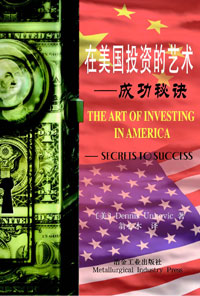 W
WThe Art of Investing in America: Secrets to Success is the sixth book written by Dennis Unkovic.
 W
WBad Samaritans: The Myth of Free Trade and the Secret History of Capitalism is a book about economics written by Ha-Joon Chang, a South Korean institutional economist specializing in development economics. It criticizes mainstream economics of globalization and neo-liberalism. Chang claims that developed countries want developing countries to change their economic policy and open their markets. Rich and powerful governments and institutions are actually "Bad Samaritans"; their intentions may be worthy but their simplistic, free-market ideology and poor understanding of history leads them into policy errors.
 W
WChallenging the Chip is a 2006 book on "labor rights and environmental justice in the global electronics industry" edited by Ted Smith, David A. Sonnenfeld, and David Naguib Pellow. It is published by Temple University Press. In three parts, the book looks at global electronics, environmental justice and labor rights, and electronic waste and extended producer responsibility. In four appendices, the book also deals with the principles of environmental justice, the computer take-back campaign, sample shareholder resolutions, and the electronics recycler's pledge of true stewardship.
 W
WThe City: London and the Global Power of Finance is a 2016 book by British economist and former trader Tony Norfield, published by Verso Books.
 W
WThe Clash of Civilizations is a thesis that people's cultural and religious identities will be the primary source of conflict in the post-Cold War world. The American political scientist Samuel P. Huntington argued that future wars would be fought not between countries, but between cultures. It was proposed in a 1992 lecture at the American Enterprise Institute, which was then developed in a 1993 Foreign Affairs article titled "The Clash of Civilizations?", in response to his former student Francis Fukuyama's 1992 book, The End of History and the Last Man. Huntington later expanded his thesis in a 1996 book The Clash of Civilizations and the Remaking of World Order.
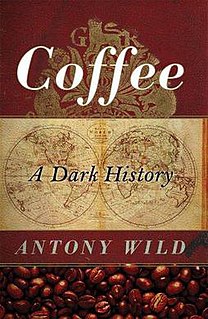 W
WCoffee: A Dark History is a 2005 book that examines the history of coffee. It was written by Antony Wild and was published by Norton. Wild had previously worked as a buyer for a specialty-coffee company for over ten years. He argues that coffee has had major effects on the economy of the British Empire. He also maintains that First World consumption of coffee and the accompanying free trade policies have had a negative impact on Third World coffee farmers.
 W
WThe Commanding Heights: The Battle for the World Economy is a book by Daniel Yergin and Joseph Stanislaw first published as The Commanding Heights: The Battle Between Government and the Marketplace That Is Remaking the Modern World in 1998. In 2002, it was adapted as a documentary of the same title and later released on DVD.
 W
WEcological Imperialism: The Biological Expansion of Europe, 900-1900 is a 1986 book by environmental historian Alfred W. Crosby. The book built on Crosby's earlier study, The Columbian Exchange, in which he described the complex global transfer of organisms that accompanied European colonial endeavors. In Ecological Imperialism, Crosby sought to explain why European colonialists were successful in establishing settler societies in temperate regions around the globe, and he argued that this was due principally to the "portmanteau biota" - disease microbes, weeds, domesticated plants and animals - that accompanied Europeans, devastating local populations and significantly re-making local landscapes. The book advanced understandings of the environmental impacts of global colonialism and re-shaped understandings of the colonial experience itself, placing environmental factors at its center.
 W
WEmpire is a book by post-Marxist philosophers Michael Hardt and Antonio Negri. Written in the mid-1990s, it was published in 2000 and quickly sold beyond its expectations as an academic work.
 W
WThe End of History and the Last Man (1992) is a book of political philosophy by American political scientist Francis Fukuyama which argues that with the ascendancy of Western liberal democracy—which occurred after the Cold War (1945–1991) and the dissolution of the Soviet Union (1991)—humanity has reached "not just ... the passing of a particular period of post-war history, but the end of history as such: That is, the end-point of mankind's ideological evolution and the universalization of Western liberal democracy as the final form of human government." For the book, which is an expansion of his essay, "The End of History?" (1989), Fukuyama draws upon the philosophies and ideologies of Georg Wilhelm Friedrich Hegel and Karl Marx, who define human history as a linear progression, from one socio-economic epoch to another.
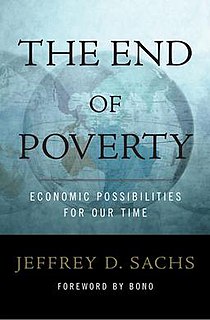 W
WThe End of Poverty: Economic Possibilities for Our Time (ISBN 1-59420-045-9) is a 2005 book by American economist Jeffrey Sachs. It was a New York Times bestseller.
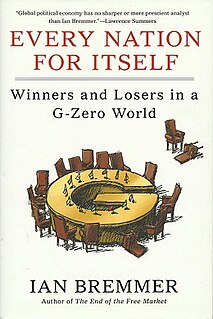 W
WEvery Nation for Itself: Winners and Losers in a G-Zero World is a 2012 non-fiction book by Ian Bremmer that explains the growing G-Zero power vacuum in international politics as no country or group of countries has the political and economic leverage to drive an international agenda or provide global public goods. The book gives a historical summary of the global political order and American role in world affairs from the post-World War II establishment of the Bretton Woods system up through the present day. It outlines the various tolls that the G-Zero will exact, potential winners and losers in such an environment, and makes predictions as to what kind of political order will succeed the G-Zero.
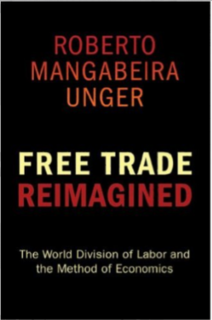 W
WFree Trade Reimagined: The World Division of Labor and the Method of Economics is a 2007 book by philosopher and politician Roberto Mangabeira Unger. In the book, Unger criticizes the doctrine holding that maximization of free trade should be the commanding goal of the worldwide trading regime, contending that this doctrine is misguided. Instead, Unger argues, the goal of an open worldwide trading regime should be reconciled with measures that foster national and regional diversity, deviation, heresy, and experiment in production, markets and economies. Unger further explores how the tradition of marginalism has rendered the discipline of economics incapable of offering deep insight into the problems of trade and of the global division of labor.
 W
WDie Globalisierungsfalle: Der Angriff auf Demokratie und Wohlstand is a 1996 non-fiction book by Hans-Peter Martin, and Harald Schumann, that describes possible implications of current trends in globalization. It was published in English as The Global Trap: Globalization and the Assault on Democracy and Prosperity in 1997. At this time, both authors were editors of the news magazine Der Spiegel. From 1999 to 2014, Hans-Peter Martin, who is stated in the book to be one of just three journalists to be allowed to take part in all activities at the Fairmont convention, was a member of the European Parliament.
 W
WThe Globalization of World Politics: An Introduction to International Relations is a book by John Baylis, Patricia Owens, and Steve Smith.
 W
WHow Soccer Explains the World: An Unlikely Theory of Globalization is a book written by American journalist Franklin Foer. It is an analysis of the interchange between soccer and the new global economy.
 W
WIn Defense of Global Capitalism is a book by Swedish writer Johan Norberg promoting economic globalization and free trade. The book was originally published in May 2001 by the Swedish think tank Timbro. Since then, a number of translations into other languages have followed.
 W
WIndia: The Emerging Giant is a 2008 book by Arvind Panagariya which describes the contemporary state of the economy of India.
 W
WIndia: The Rise of an Asian Giant is a 2008 book by Dietmar Rothermund which describes the contemporary state of the major influences on the economy of India.
 W
WAn Introduction to Sustainable Development is a 2007 Earthscan book which presents sustainable development as a process that "meets the needs of the present generation without compromising the ability of future generations to meet their own needs". This textbook examines the environmental, economic, and social dimensions of sustainable development by exploring changing patterns of consumption, production, and distribution of resources. Case studies include coastal wetlands; community-based water supply and sanitation systems; and sustainable energy, forest, and industrial development.
 W
WJihad vs. McWorld: How Globalism and Tribalism Are Reshaping the World is a 1995 book by American political scientist Benjamin Barber, in which he puts forth a theory that describes the struggle between "McWorld" and "Jihad". Benjamin Barber similarly questions the impact of economic globalization as well as its problems for democracy.
 W
WThe Left Alternative is a 2009 book by philosopher and politician Roberto Mangabeira Unger. In the book, Unger identifies problems with contemporary leftism and proposes a way to achieve the goals that he believes should be central to the progressive cause: inclusive economic growth through the heating up of politics and democratizing the market economy, a relentless process of institutional innovation that depends less upon crisis for change, and depends more on shortening the distance between context-preserving and context-transforming moves. The Left Alternative was first published in 2006 as What Should the Left Propose?
 W
WThe Lexus and the Olive Tree: Understanding Globalization is a 1999 book by Thomas L. Friedman that posits that the world is currently undergoing two struggles: the drive for prosperity and development, symbolized by the Lexus LS, and the desire to retain identity and traditions, symbolized by the olive tree.
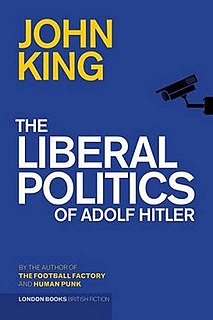 W
WThe Liberal Politics of Adolf Hitler is a novel by the author John King, published in 2016. Three essays led into its release – The Left Wing Case For Leaving The EU and Flying The Flag, and The People Versus The Elite (Penguin). A supporter of British withdrawal from the European Union, King was previously on the Advisory Council of the People’s Pledge group and appeared on BBC Radio 4's Any Questions at the time of the book’s launch. The author David Peace has described it as: “One of the best, if not the best, bravest and most exciting books I’ve read in years – needed saying, needed writing and needs to be read.”
 W
WLiberty Defined: 50 Essential Issues That Affect Our Freedom is a 2011 non-fiction book by Congressman Ron Paul (R-TX).
 W
WMaking Globalization Work is a book written by Nobel Prize laureate Joseph E. Stiglitz, who also wrote Globalization and Its Discontents and several other books.
 W
WThe McDonaldization of Society is a 1993 book by sociologist George Ritzer. Ritzer suggests that in the later part of the 20th century the socially-structured form of the fast-food restaurant has become the organizational force representing and extending the process of rationalization into the realm of everyday interaction and individual identity. McDonald's of the 1990s serves as the case model. The book introduced the term McDonaldization to learned discourse as a way to describe a social process which produces "mind-numbing sameness", according to a 2002 review of a related academic text.
 W
WMerchant Kings: When Companies Ruled the World, 1600 to 1900 is a 2009 non-fiction popular history book by Stephen. R. Bown, which discusses the age of "heroic commerce" through biographical profiles of six of the leading "merchant kings" of the great chartered companies which held colonial trade monopolies: Jan Pieterszoon Coen of the Dutch East India Company, Pieter Stuyvesant of the Dutch West India Company, Robert Clive of the English East India Company, Alexander Baranov of the Russian American Company, George Simpson of the Hudson's Bay Company, and Cecil John Rhodes of the British South Africa Company.
 W
WThe New World Order is a non-fiction book written by H.G. Wells and was published by Secker & Warburg in January 1940. In The New World Order, Wells proposed a framework of international functionalism that could guide the world towards achieving world peace. To achieve these ends, Wells asserted that a socialist and scientifically planned world government would need to be formed to defend human rights.
 W
WThe No-Nonsense Guide to Globalization is a book by Wayne Ellwood, an editor for the New Internationalist. It was first published in 2001 by Verso Books.
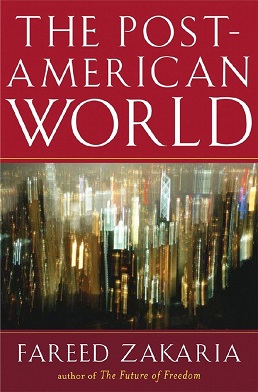 W
WThe Post-American World is a non-fiction book by American journalist Fareed Zakaria. It was published in hardcover and audiobook formats in early May 2008 and became available in paperback in early May 2009; the Updated and Expanded Release 2.0 followed in 2011. In the book, Zakaria argues that, thanks to the actions of the United States in spreading liberal democracy across the world, other countries are now competing with the US in terms of economic, industrial, and cultural power. While the US continues to dominate in terms of political-military power, other countries such as China and India are becoming global players in many fields.
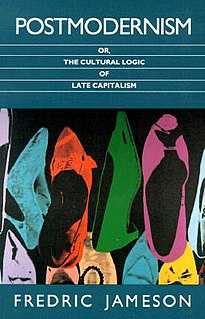 W
WPostmodernism, or, the Cultural Logic of Late Capitalism is a 1991 book by Fredric Jameson, in which the author offers a critique of modernism and postmodernism from a Marxist perspective. The book began as a 1984 article in the New Left Review.
 W
WProfit Over People: Neoliberalism and Global Order is a 1999 book by Noam Chomsky, published by Seven Stories Press. It contains his critique of neoliberalism.
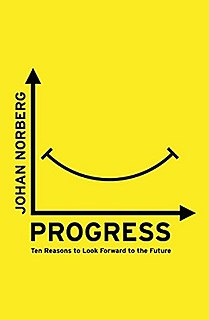 W
WProgress: Ten Reasons to Look Forward to the Future is a 2016 book by Swedish writer Johan Norberg, which promotes globalization, free trade and the notion of progress. In it, Norberg develops his ideas published previously in In Defense of Global Capitalism (2001).
 W
WThe Prosperous Few and the Restless Many is a short book compiling three revised interviews of the United States academic Noam Chomsky by David Barsamian, originally conducted on December 16, 1992, January 14 and 21, 1993.
 W
WReal England: The Battle Against the Bland is a 2008 travelogue written by Paul Kingsnorth describing his first-hand account of the homogenization of England through global market and industrial forces.
 W
WThe Revolution: A Manifesto is a New York Times #1 best seller by Republican former U.S. Congressman Ron Paul. The work was published on April 30, 2008 by Grand Central Publishing. According to Paul, the book is based on written notes during his 2008 presidential campaign.
 W
WRewire: Digital Cosmopolitans in the Age of Connection is a 2013 nonfiction book about contemporary globalization and xenophilia by American blogger Ethan Zuckerman of MIT. It describes homophilic barriers to cosmopolitanism such as filter bubbles and media bias. Zuckerman calls for a strenuously internationalized media and cultural literacy empowered by language translation. He cites the work of scholars Kwame Anthony Appiah, Ronald Stuart Burt, Mark Granovetter, and Robert D. Putnam, and of cosmopolitan exemplars Matt Harding, Erik Hersman, Dhani Jones, Roland Soong, Global Voices Online, Härnu, Meedan, and Tea Leaf Nation.
 W
WThe Secret Society: Cecil John Rhodes's Plan for a New World Order is a 2015 book by Robin Brown.
 W
WThe Shock Doctrine: The Rise of Disaster Capitalism is a 2007 book by the Canadian author and social activist Naomi Klein. In the book, Klein argues that neoliberal free market policies have risen to prominence in some developed countries because of a deliberate strategy of "shock therapy". This centers on the exploitation of national crises to establish controversial and questionable policies, while citizens are too distracted to engage and develop an adequate response, and resist effectively. The book suggests that some man-made events, such as the Iraq War, were undertaken with the intention of pushing through such unpopular policies in their wake.
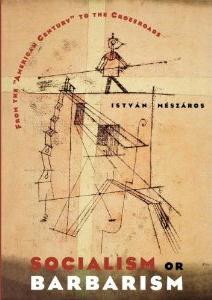 W
WSocialism or Barbarism is a book about globalism, U.S. socialism and capitalist systems by Hungarian Marxist philosopher and economist István Mészáros. It was published in 2001 and is composed of two parts, the first part is an expanded version of an essay of the same title originally published in 2000; the second part consists of an interview conducted in 1998.
 W
WSuperclass: The Global Power Elite and the World They Are Making is a book about global governance by American author David Rothkopf, released in March 2008 by publisher Farrar, Straus and Giroux. The book claims that the world population of 6 billion people is subject to the immense influence of an elite of six thousand individuals.
 W
WThat Used to be Us: How America Fell Behind in the World It Invented and How We Can Come Back is a non-fiction book written by Thomas Friedman, a Pulitzer Prize-winning New York Times columnist and author, with Michael Mandelbaum, a writer and foreign policy professor at Johns Hopkins University. They published the book on September 5, 2011 in the United States. It addresses what the authors see as the four major problems America faces today and possible solutions. These problems are defined as: globalization, the revolution in information technology, the nation's chronic deficits, and its pattern of energy consumption.
 W
WVermeer's Hat: The Seventeenth Century and the Dawn of the Global World is a book by the Canadian historian Professor Timothy Brook, in which he explores the roots of world trade in the 17th century through six paintings by the Dutch Golden Age painter Johannes Vermeer. It focuses especially on growing ties between Europe and the rest of the world and the impact of China on the world, during what Brook sees as an "age of innovation" and improvisation.
 W
WThe World Is Curved: Hidden Dangers to the Global Economy is a book written by David M. Smick, a financial market consultant, non-fiction author, and Chairman and CEO in the consultancy company of Johnson Smick International (JSI). This book opposes the views of Thomas Friedman's The World Is Flat: A Brief History of the Twenty-First Century. Smick considers the potential negative ramifications of a constantly fluctuating global economy and analyzes possible solutions to these challenges.
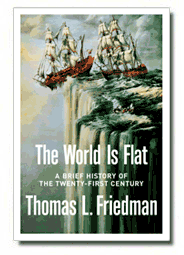 W
WThe World Is Flat: A Brief History of the Twenty-first Century is an international best-selling book by Thomas L. Friedman that analyzes globalization, primarily in the early 21st century. The title is a metaphor for viewing the world as a level playing field in terms of commerce, wherein all competitors, except for labor, have an equal opportunity. As the first edition cover illustration indicates, the title also alludes to the perceptual shift required for countries, companies, and individuals to remain competitive in a global market in which historical and geographic divisions are becoming increasingly irrelevant.
 W
WWorld on Fire: How Exporting Free Market Democracy Breeds Ethnic Hatred and Global Instability is a 2003 book by the American law professor Amy Chua. It is an academic study of ethnic and sociological divisions in the economic and political systems of various societies. The book discusses the concept of market-dominant minorities, defined as ethnic minority groups who, under given market conditions, tend to dominate economically, often significantly, over all other ethnic groups in the country.
 W
WWorld Poverty and Human Rights: Cosmopolitan Responsibilities and Reforms is a 2002 book by Thomas Pogge. In the book, Pogge explains that the poorest 44 percent of humankind have 1.3 percent of global income and their purchasing power per person per day is less than that of $2.15 in the US in 1993; 826 million of them do not have enough to eat. One-third of all human deaths are from poverty-related causes: 18 million annually, including 12 million children under five.